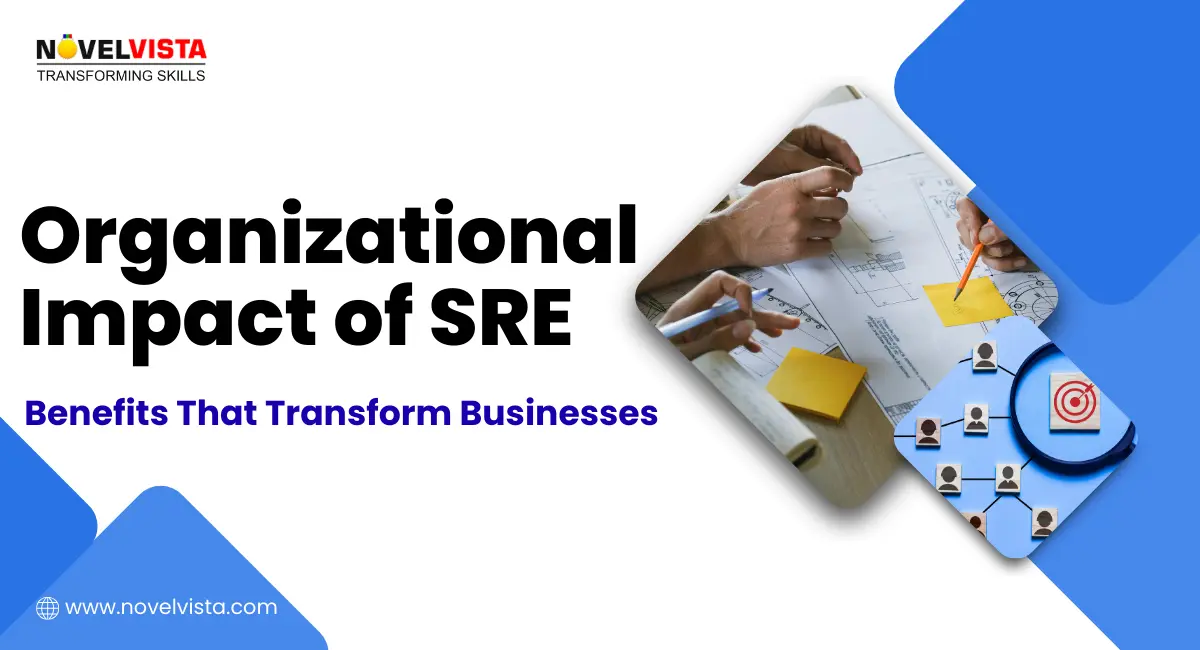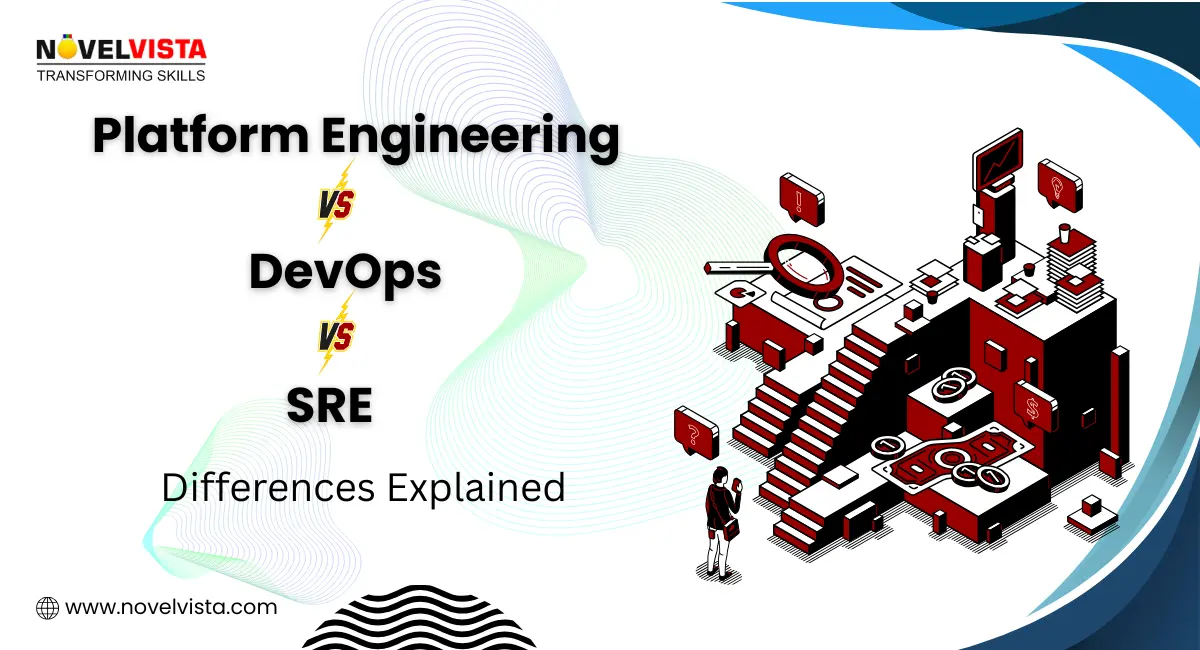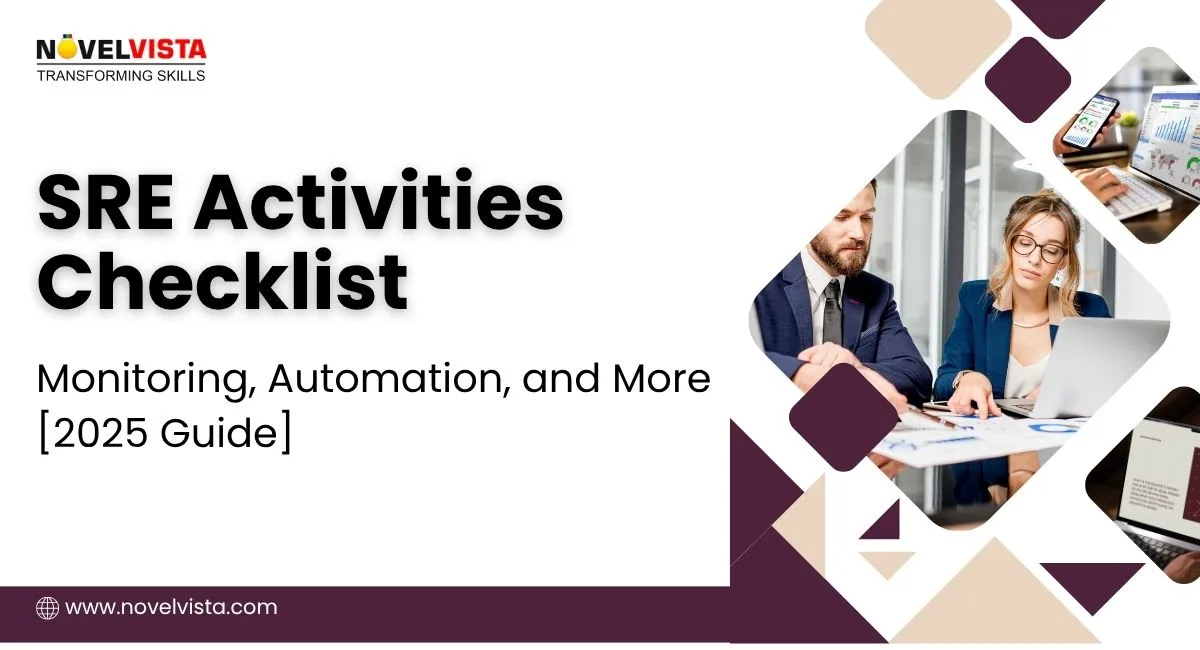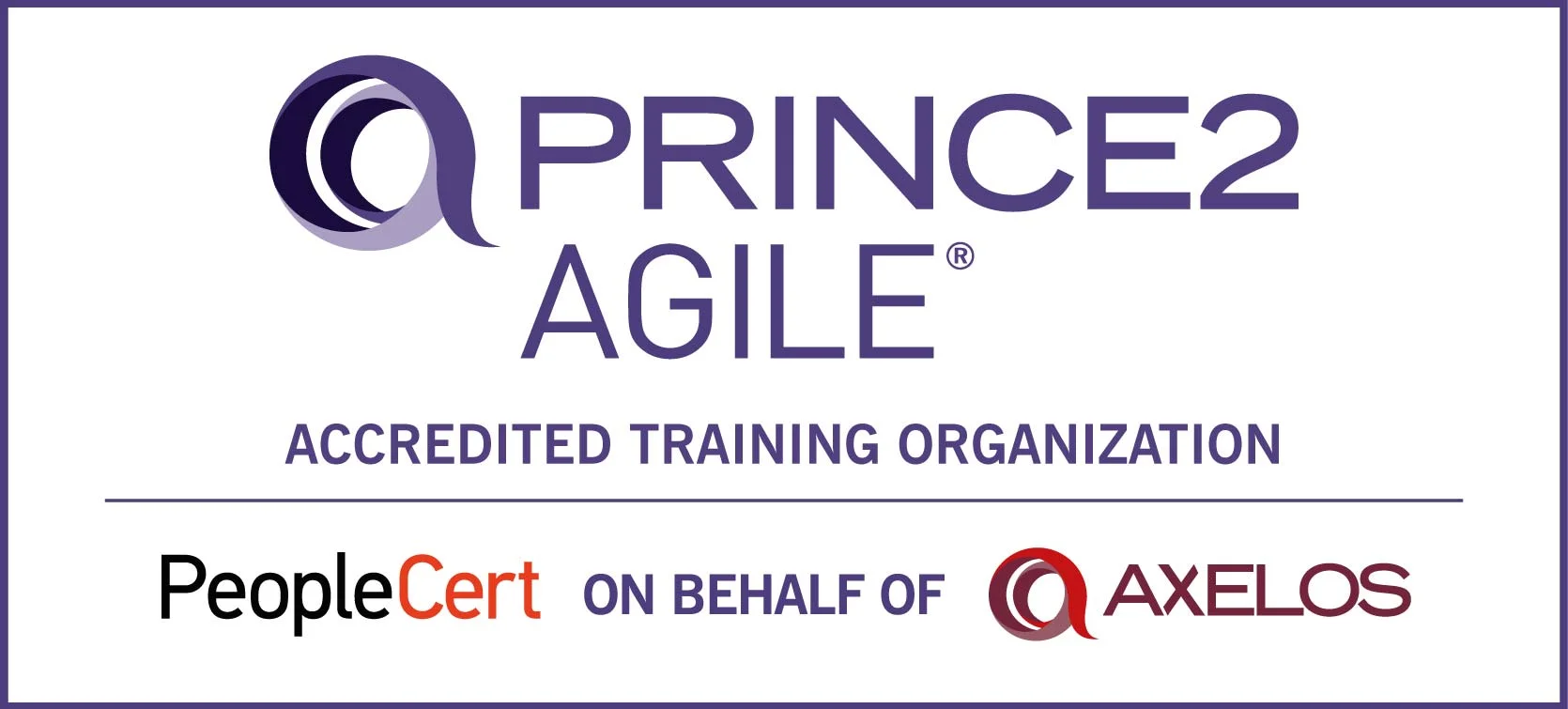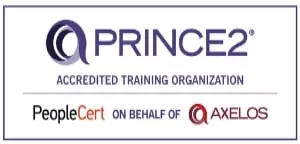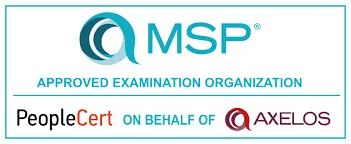Imagine being at the forefront of ensuring that critical systems never fail, enabling millions of users to rely on your creations every day. SRE engineer skills has emerged as a powerhouse discipline in tech, blending software engineering with IT operations to keep systems scalable, reliable, and high-performing. However, with the massive growth of this field comes a tough challenge: how do you get started in SRE?
If you're finding yourself stuck in a rut, facing career stagnation, skill gaps, or missing out on promotions, you might be wondering how to break free. The good news? site reliability engineer skills are growing rapidly worldwide, particularly in 2025, and they offer high salaries and career advancement.
The solution lies in SRE certification, which offers a structured path to advanced skills, industry recognition, and ultimately, career fulfilment. This guide explores the essential skills, requirements, and pathways that will set you up for success as an SRE.
Essential Technical Skills & Tools
The skills required for an SRE engineer are demanding and a combination of technical expertise and practical tools to ensure systems are robust, scalable, and efficient. Below are the core technical skills and tools every SRE needs to master:
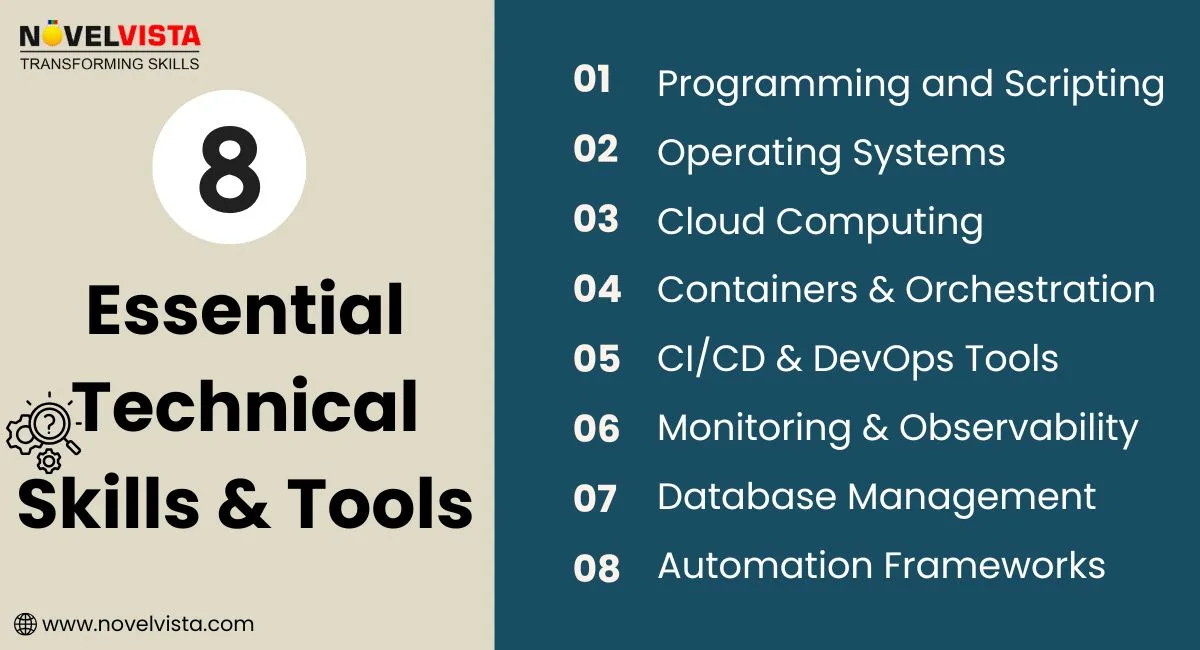
1. Programming and Scripting
As an SRE, automation is key to reducing toil and ensuring system reliability. You’ll need proficiency in scripting languages like Python, Go, or Ruby to automate tasks, create tooling, and manage configuration.
Skills Needed:
- Python for automation scripts
- Go for system-level programming
- Ruby for building infrastructure as code
2. Operating Systems
A strong understanding of Linux/Unix systems is essential, as these are the backbone of many cloud environments and containers in modern tech stacks. SREs need to troubleshoot system issues, manage resources, and configure servers.
Skills Needed:
- Linux system administration
- Networking basics for managing traffic
- System design to ensure scalability and fault tolerance
3. Cloud Computing
Familiarity with cloud platforms like AWS, Azure, or Google Cloud is essential for an SRE. These platforms provide the infrastructure for deploying, managing, and scaling applications in distributed environments. Understanding cloud services is critical for optimizing system performance and reliability.
Skills Needed:
- AWS, Google Cloud, or Azure expertise
- Containerization with Docker
- Orchestration using Kubernetes for large-scale deployments
4. Containers & Orchestration
As cloud-native applications become more prevalent, understanding containerization tools like Docker and managing containerized workloads with Kubernetes is crucial. These tools enable SREs to deploy, scale, and manage applications more efficiently.
Skills Needed:
- Docker for containerizing applications
- Kubernetes for container orchestration
- Helm for managing Kubernetes applications
5. CI/CD & DevOps Tools
SREs work closely with DevOps teams to streamline the continuous integration and delivery (CI/CD) pipeline. This means familiarity with tools like Jenkins, GitLab CI, or CircleCI to automate testing, integration, and deployment is essential.
Skills Needed:
- Jenkins, GitLab CI, or CircleCI for CI/CD
- Terraform for infrastructure as code
- Ansible or Chef for configuration management
6. Monitoring & Observability
SREs are responsible for monitoring system health and performance using tools like Prometheus, Grafana, or ELK Stack (Elasticsearch, Logstash, Kibana). These tools help in tracking performance metrics, logging errors, and detecting anomalies.
Skills Needed:
- Prometheus for metrics collection
- Grafana for data visualization
- ELK Stack for centralized logging
7. Database Management
A strong understanding of databases is crucial, as SREs need to manage both SQL and NoSQL systems. You’ll need to be proficient in database optimization and performance tuning to ensure they scale effectively.
Skills Needed:
- SQL (MySQL, PostgreSQL) for relational databases
- NoSQL (MongoDB, Cassandra) for non-relational databases
- Replication and sharding techniques for scaling databases
8. Automation Frameworks
Automating repetitive tasks is at the core of the site reliability engineer's skills. You’ll need to be proficient with frameworks that facilitate automation and help reduce manual intervention in system management.
Skills Needed:
- Ansible, Chef, or Puppet for infrastructure automation
- Terraform for provisioning cloud infrastructure as code
SRE Engineer Skills & Other Requirements
While technical expertise is critical in Site Reliability Engineering, success also relies heavily on soft skills and other key personal qualities. As an SRE, you’ll often work with teams across development, operations, and other departments. Here are some essential SRE engineer requirements and qualities that make SREs stand out:
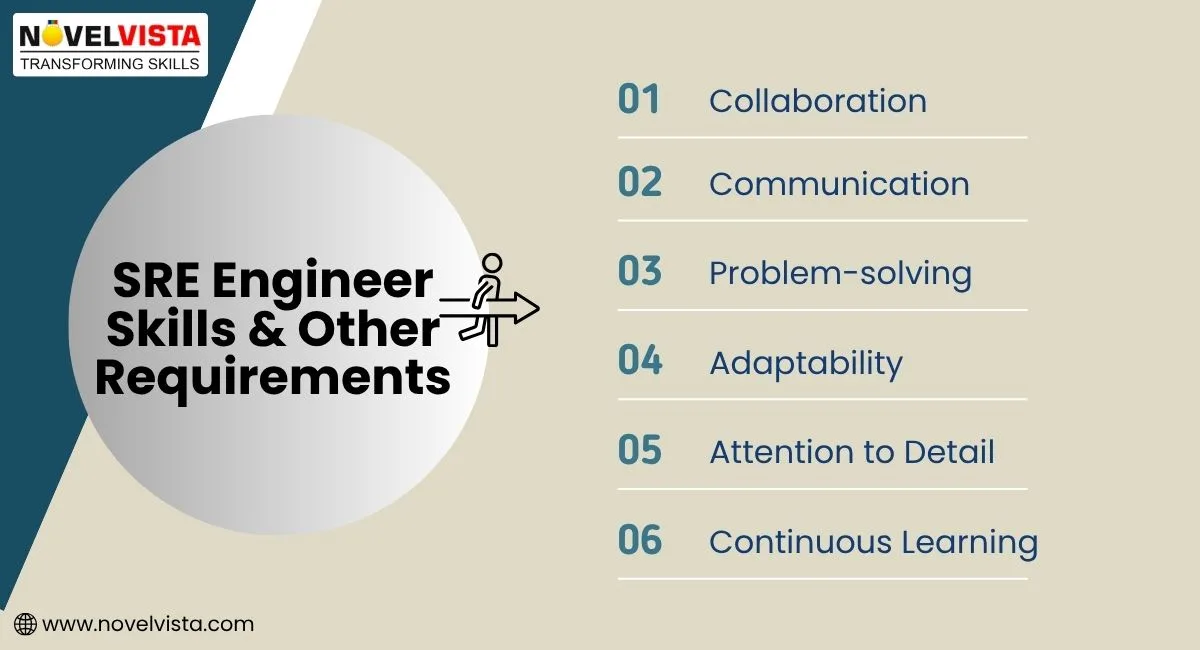
- Collaboration: SREs often serve as a bridge between development and operations teams. Therefore, strong collaboration skills are essential to effectively manage workflows, prioritize issues, and implement solutions across teams.
- Communication: Clear communication is crucial, as SREs must interact with different teams, document procedures, and communicate issues or improvements. Whether it’s writing concise reports or explaining complex problems, effective communication ensures that everyone is on the same page.
- Problem-solving: SREs are often tasked with troubleshooting complex issues that could affect the availability or performance of a system. Strong analytical and problem-solving skills are vital for quickly identifying and resolving issues before they escalate.
- Adaptability: Technology is always evolving, and so is the world of SRE. Adapting to new tools, techniques, and workflows is crucial for staying ahead in this fast-paced field. Being adaptable ensures that SREs can manage both the stability of legacy systems and the development of new infrastructure.
- Attention to Detail: Given the high stakes of maintaining reliable systems, SREs need a keen eye for detail. Whether monitoring performance metrics, reviewing logs, or conducting audits, attention to detail helps prevent small issues from turning into major incidents.
- Continuous Learning: SRE is a rapidly evolving field, and the most successful professionals are those who continue to learn and adapt. Keeping up with the latest industry trends, tools, and best practices is a necessity for long-term SRE career success.
Education, Training & Certifications
To become a successful SRE, there are several ways to gain SRE engineer skills, and experience required for the role. Here’s a breakdown of the key areas to focus on:
Academic Background
While a formal computer science, IT, or engineering degree is not always required, it provides a strong foundation for understanding core concepts in systems engineering, cloud computing, databases, and networking. Many SREs have backgrounds in software engineering, DevOps, or systems administration.
Industry Certifications
Certifications help validate your skills and can give you a competitive edge. Some valuable certifications for SREs include:
- Certified Kubernetes Administrator (CKA): Demonstrates proficiency in Kubernetes, a crucial tool for container orchestration.
- AWS Certified DevOps Engineer: A key certification for working in cloud environments, especially for SREs focused on cloud infrastructure.
- Google Professional Cloud DevOps Engineer: Offers certification for advanced knowledge of Google Cloud and SRE principles.
- Microsoft Certified: Azure DevOps Engineer Expert: Useful for SREs working with Azure cloud platforms.
Online Courses & Bootcamps
Several online platforms and bootcamps offer SRE-focused training. NovelVista provides SRE certification courses that cover technical skills and practical tools like Prometheus, Grafana, Kubernetes, and CI/CD.
Continuous Learning
The field of SRE is constantly evolving with new tools, technologies, and methods. As an SRE, you must be committed to continuous learning to stay relevant. Regularly attending webinars, reading books, joining forums, and participating in conferences will keep you up to date with the latest advancements.
Career Outlook & Market Demand (Global & India)
Global Growth
Site reliability engineer skills are in high demand globally. As companies increasingly rely on cloud-based systems, the need for highly available, scalable, and reliable systems grows. Major tech giants such as Google, Amazon, and Netflix already have dedicated SRE teams to ensure the reliability of their vast infrastructure.
According to Global Market Insights, the DevOps market surpassed USD 8 billion in 2022 and is expected to expand at a compound annual growth rate (CAGR) of 20% from 2023 to 2032, fueled by the increasing demand to shorten software development cycles and speed up delivery.
High Compensation
According to Payscale, the salary for Site Reliability Engineers is competitive across industries. On average, an SRE in the United States earns around $128,065 per year, while in India, salaries for SREs range from ₹1,556,308 annually, depending on experience and location.
India Market
In India, SRE role requirements are seeing rapid growth, especially in Bangalore, Hyderabad, and Mumbai, which are hubs for the IT industry. As more companies embrace cloud-native infrastructures, the demand for SRE professionals will only continue to rise. India offers great potential for career growth in this field, with many tech companies adopting SRE principles to ensure reliability at scale.
30-Day SRE Learning Plan
Start your SRE career with a clear, practical plan—one day at a time.
Gaining Experience & Career Path
Hands-On Practice
The best way to learn SRE is by doing. Whether through internships, personal projects, or working in a DevOps role, gaining hands-on experience will allow you to apply the technical skills you’ve learned. Start with small projects like setting up Kubernetes clusters or implementing CI/CD pipelines to gain practical experience.
Build a Portfolio
Showcase SRE engineer skills through a portfolio of projects you’ve worked on. Whether it’s open-source contributions, personal infrastructure projects, or case studies from your work experience, having a portfolio will give you a competitive edge when applying for jobs.
Networking & Mentorship
Building a network of SRE professionals is invaluable. Attend SRE meetups, LinkedIn groups, and tech conferences to connect with peers and potential mentors who can guide you in your career.
Career Progression
As you gain experience, you can progress into higher site reliability engineer skills requirements, such as Senior SRE, SRE Manager, or SRE Lead. Many SREs eventually move into more specialized SRE role expectations like Cloud Architect or Site Reliability Consultant.
How NovelVista Can Help You
NovelVista offers comprehensive SRE training for professionals at every stage of their careers. Whether you’re just starting or looking to advance your skills, NovelVista provides hands-on courses that teach you the practical site reliability engineer skills you need to excel in SRE requirements.
What Makes NovelVista Stand Out?
- Accredited & Expert-Led Training: Learn from instructors with 20+ years of experience in SRE and DevOps.
- Hands-On Learning: Gain real-world experience with tools like Prometheus, Grafana, Kubernetes, and Docker.
- Flexible Learning Options: Choose from self-paced, live online, or corporate training to suit your schedule.
Career-Focused Support: Access mentorship, mock exams, and exam guidance to ensure your certification journey is smooth.
Our Suggestion
To start your career as an SRE, follow these steps:
- Lay a strong foundation: Focus on gaining knowledge of Linux, cloud systems, and programming.
- Build a portfolio: Apply your skills in real-world projects and showcase them in a portfolio.
- Network actively: Connect with SRE professionals to build relationships and gain insights into the field.
- Choose the right learning path: Enroll in NovelVista’s SRE courses for structured, expert-led training.
- Pursue relevant certifications: Certifications like Google Professional Cloud DevOps Engineer or AWS Certified DevOps Engineer will boost your career.
- Use bundled programs: NovelVista offers bundled certification packages that ensure you get the most value for your investment.
Conclusion:
Site Reliability Engineering (SRE) is a rewarding and high-demand field with a clear path to career growth. By acquiring the right mix of site reliability engineer skills, expertise, and certifications, you can build a successful SRE career, whether in India or globally. NovelVista’s SRE certification courses provide the perfect structure and support to help you navigate this journey with confidence.
Frequently Asked Questions
Author Details

Vaibhav Umarvaishya
Cloud Engineer | Solution Architect
As a Cloud Engineer and AWS Solutions Architect Associate at NovelVista, I specialized in designing and deploying scalable and fault-tolerant systems on AWS. My responsibilities included selecting suitable AWS services based on specific requirements, managing AWS costs, and implementing best practices for security. I also played a pivotal role in migrating complex applications to AWS and advising on architectural decisions to optimize cloud deployments.
Confused About Certification?
Get Free Consultation Call



